The Rewilding Apennines team have begun operating a supplementary feeding station for griffon vultures in the Monte Velino Nature Reserve. By ensuring a safe supply of food for the birds, the station will support the recovery of the species, and is a step towards realising a landscape where vultures are sustained entirely by the carcasses of wild animals.
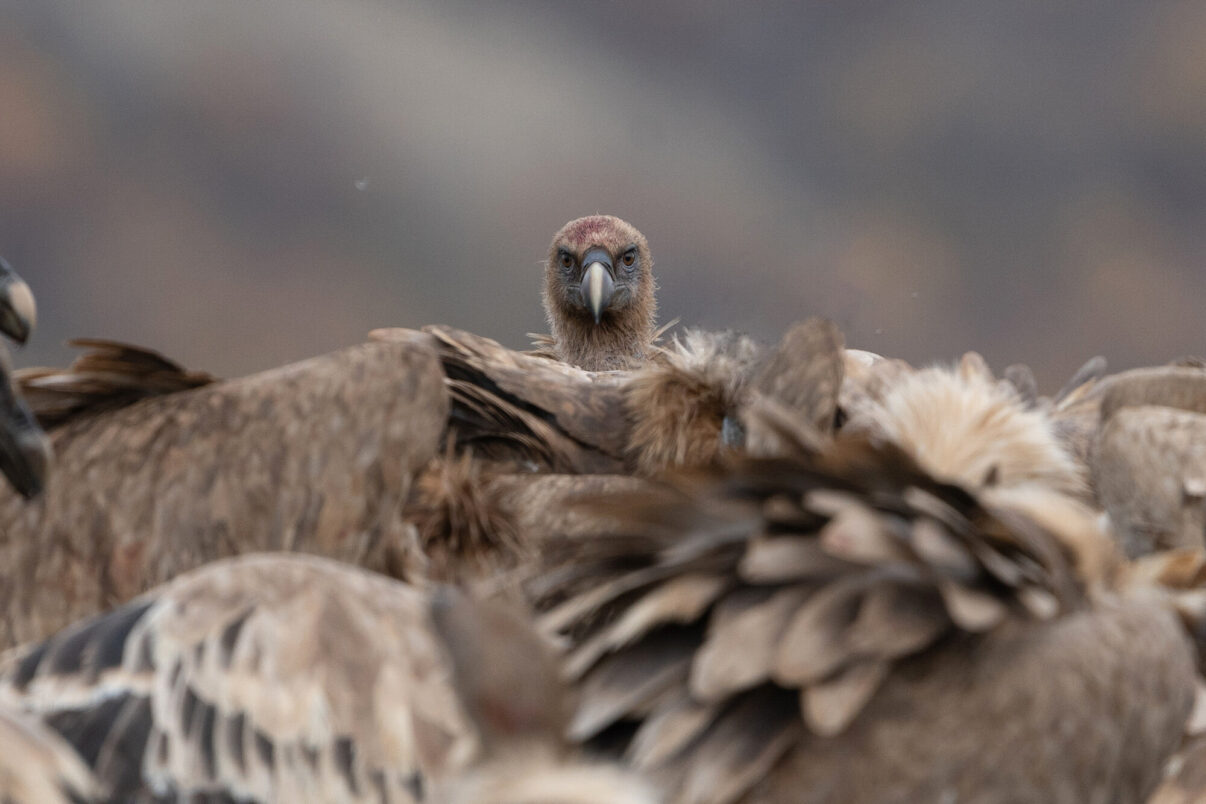
Towards naturally sustained vultures
In the Central Apennines of Italy, the Rewilding Apennines team are currently employing a range of measures to support the area’s gradually recovering griffon vulture population, which now numbers between 300 and 350 birds, following reintroductions around 30 years ago. As a keystone scavenger, griffon vultures – and other vulture species – perform a vital ecological role, disposing of carcasses and helping to eliminate bacteria and diseases.
In an ideal world, vultures across Europe would feed exclusively on the carcasses of wild animals. However, a decline in wildlife populations means livestock carcasses are often a critical source of food. This is the case in the Central Apennines, where extensively grazed livestock far outnumber wild herbivores such as deer and chamois.
While rewilding measures work to support the recovery of wildlife populations in the Central Apennine landscape, one of the most important measures to support griffon vulture comeback is to ensure the birds have a safe supply of livestock carcasses. It is essential that these are free from poison and dangerous chemicals such as diclofenac, both of which can have a devastating impact on vulture populations. This is why the Rewilding Apennines team has just opened a supplementary feeding station near the town of Massa d’Albe, in the Monte Velino Nature Reserve, close to two of the biggest colonies of griffon vultures in the area. The reserve is managed by the Carabinieri Biodiversità of Castel di Sangro, with whom the Rewilding Apennines have an agreement enabling them to manage the feeding station.
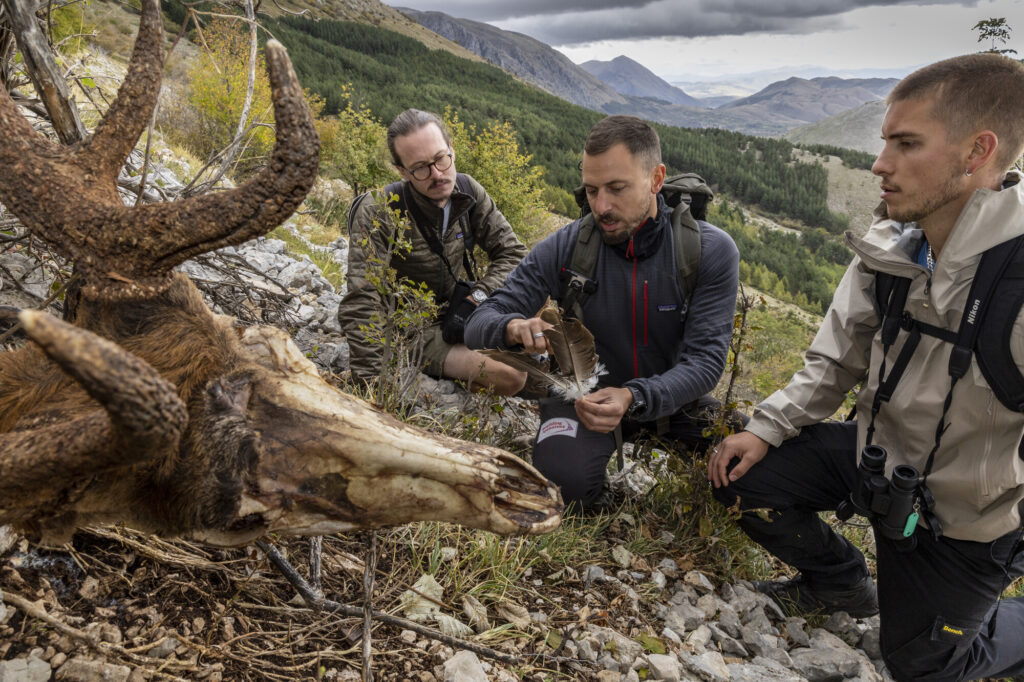
An existential threat
The carcasses of extensively grazed livestock that have either died of natural causes, or have been predated, are a critical source of food for griffon vultures in the Central Apennines – around 80% of their diet is currently comprised of cow, horse, and sheep carrion. Under Italian law, farmers must dispose of livestock carcasses by burying or burning them – or risk a severe fine – but in mountainous areas such as the Central Apennines, this is frequently impossible, because animals often die in inaccessible places.
When vultures feed on these carcasses, there is no control over whether they contain potentially lethal chemicals, such as the anti-inflammatory drug diclofenac. Diclofenac is still used for veterinary purposes in Italy, despite being banned in many Asian countries, following a massive collapse in vulture populations there. In addition, small numbers of farmers also leave out poisoned carcasses or baits targeting wolves, in an attempt to stop predation on calves and lambs. These pose a severe and indiscriminate threat to vultures and other wildlife, as well as to domesticated animals, pets, and people.
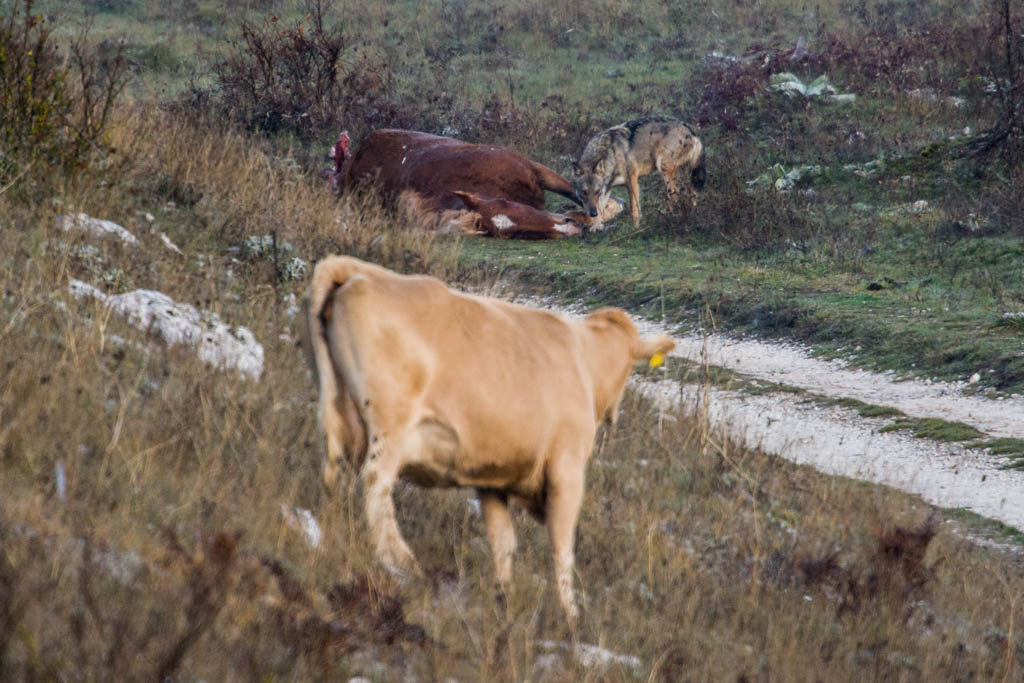
Good for vultures, good for farmers too
Having obtained the necessary permits, the Rewilding Apennines team can accept carcasses from farmers – comprising cattle, horses, and sheep that have died of natural causes – within a 60-kilometre radius of the new feeding station. Around two tonnes of carcasses will be made available to the griffon vultures every month. Each carcass supplied to the station will be thoroughly checked by a veterinarian to ensure it is safe for the vultures to feed on. An information board has also been set up by the team to explain to people the purpose of the feeding station, and how it works.
Being able to supply carcasses to the station benefits farmers as well as vultures, as the disposal cost of a fully grown cow or horse can be up to 400 euros. The team will organise the collection of all carcasses, with the nearest farmers given priority for convenience and to minimise carbon emissions.
“The farmers who have registered with us to supply carcasses are overwhelmingly enthusiastic about the new feeding station,” says Rewilding Apennines Communications Manager Angela Tavone. “Establishing the station has helped us to engage with them and to educate them about the ecological importance of vultures, and the need to supply the birds with food that is safe for their consumption.”
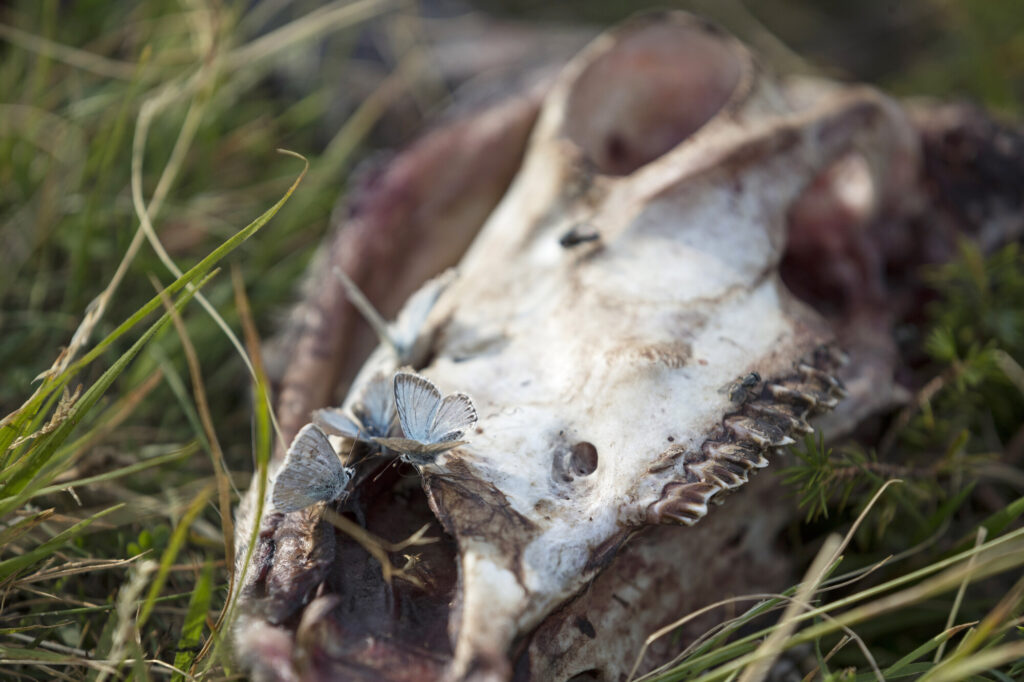
The importance of feeding stations
In the wake of the mad cow disease crisis in the early 2000s, the European Union passed legislation that banned the leaving of dead livestock in the field. The carcasses of domestic animals had to be collected from farms and destroyed, drastically reducing the availability of food for scavenging birds such as vultures, and negatively impacting their populations. Vulture conservation programmes in different European countries are tackling this challenge, and the challenge posed by veterinary drugs and poisoning, by providing safe food at supplementary feeding stations.
“The main aim with this feeding station is to guarantee a safe supply of food for the vultures, and to ensure the station works smoothly,” explains Nicolò Borgianni, the Rewilding Apennines vulture field officer. “Moving forwards, we would like to develop a network of ‘light feeding stations’ in the Central Apennines that farmers could use from time to time, and then for farmers to leave carcasses directly in nature, assuming their farms have been authorised as safe. But this progression will require changes in legislation.”
The Rewilding Apennines team is also engaged in measures to enhance the local population of Apennine chamois, and to create extensive coexistence corridors connecting parks and other protected areas, which are aimed at supporting the recovery of a wide range of wildlife species.
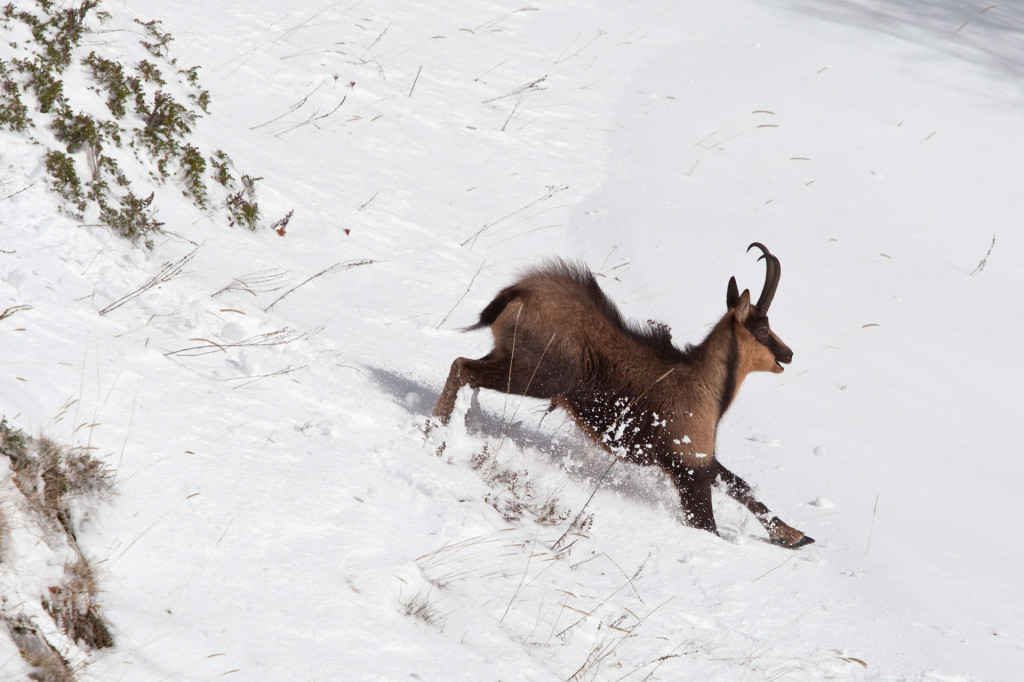
Preventing habituation
The new feeding station will be operated in a way that prevents the griffon vultures becoming habituated, which could affect their ability to search for naturally occurring food. Carcasses will be left out on different days and at different times of day, while the quantity of carrion offered will also be varied and regulated.
Measures carried out by the Rewilding Apennines team to support the comeback of griffon vultures are enabled by a grant from French philanthropic foundation Fondation Ensemble, together with co-funding from Rewilding Europe.
